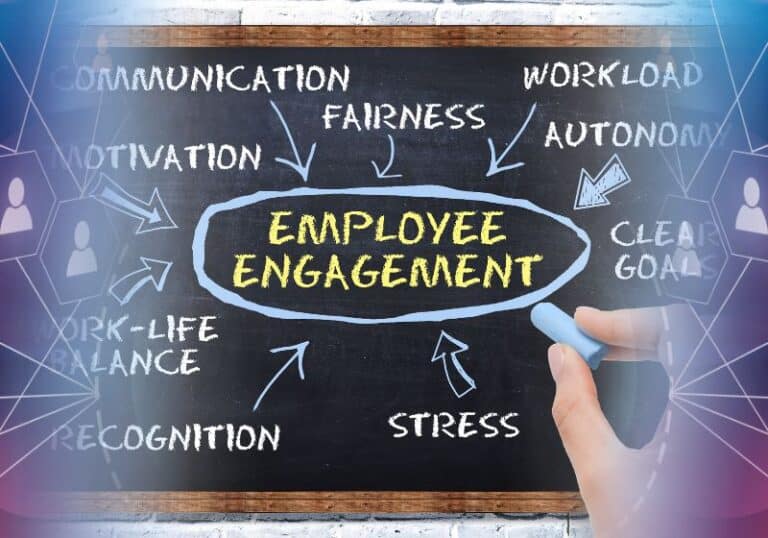Are Employees Allowed to Watch the World Cup at Work?

The Rugby World Cup is set to kick off on Friday, 8th September with hosts France set to face New Zealand’s All Blacks at 8.15pm. However, not all of the kick-off times are quite so accessible, and many games will take place during normal working hours. As such, we ask a question that is going to be on the mind of many of the millions of rugby fans across the country: is it okay to watch the world cup at work?
Watching at Work: What are the Options for Employers?
In light of the upcoming World Cup, employers are tasked with facing employees who might, at the very least, be somewhat distracted. While there’s no legal obligation to allow employees to watch sport at work, there are options to consider.
So, should they opt for world cup charts in the office, beers at lunch, matches displayed on a widescreen TV? A total prohibition? Or, perhaps, something in between?
Many businesses are accepting that due to rugby’s enduring popularity in the UK, the fact of the matter is that some employees will go to any length to watch the games. As a result, some companies are allowing the major games to be broadcast for those at their workstations.
Moreover, in the wake of the pandemic, more of us than ever before are working ‘flexibly’, meaning that many employees will have access to the rugby because they’ll be working from home.
At last year’s football World Cup, Leeds Building Society left it to individual employees to decide for themselves whether or not to watch the games at home or even at the pub, according to the BBC[1]. That same year, pollsters Opinium found that nearly half of working fans will be allowed to watch the game during office hours[2].
The Positive Approach
Much as with last year’s football world cup, there will doubtlessly be many businesses who embrace the coming of the new event, seeing it as an opportunity for fun and bonding with colleagues – or maybe even clients.
In today’s increasingly diverse workplace, it can be seen as a chance for employees to discuss their different nationalities and perspectives in a respectful but jovial manner, and, while of course not every employee is likely to be a fan of rugby, it can also be a source of light-hearted joking.
As a result of taking the more positive approach, your business may reap the benefits of increased co-operation and a sense of general camaraderie that it would otherwise miss out on.
The Negative Approach
On the other hand, it’s clear that certain businesses simply can’t afford to have their workers distracted. Even office environments come with an attendant set of risks that any distraction is likely to exacerbate, even more so if the business in question involves other places, like a factory, say, or a warehouse.
In these environments it’s clear that safety concerns trump any sport, regardless of how interested your employees may or may not be in it. As a result, having a widespread ban could be one appropriate course of action, although it may result in tension and friction at work.
Matters such as these are a delicate balance between keeping employees happy and keeping them safe and productive.
A Middle Path?
Between acceptance – even encouragement – and wholesale bans, there may be a middle route that works for everyone. After all, even with a blanket ban, employees may decide to take time off, listen on their phone or call in sick to watch the games, especially if their team goes further in the tournament.
Instead, employers can take a more tactical approach. Consider amending working hours where possible for those who are more interested, or try switching shifts around. Or, if it is reasonable, employers can offer – as Leeds Building Society did – a flexible approach, and allow employees to work from home.
Conclusion
Ultimately, it is down to you as an employer to figure out what works best for you and your business. With any major sporting event, there will always be those passionate fans who will endeavour to never miss a single kick. The trick is to find a way to accommodate them without causing harm to the business or the working relationships of employees.
After all, perhaps having people in the office and at work but slightly distracted for an hour or two is preferable to them ‘pulling a sickie’ and not turning in at all!
Moreover, by taking a laid-back approach when it’s feasible to do so can build a sense of trust and solidarity with the business and with colleagues.
To understand if such an approach can work for your business, contact HR:4UK’s team of dedicated, professional experts today on 01455 444 222 or email: [email protected]
[1] BBC. (20th November 2022). Will you be allowed to watch the World Cup at work? https://www.bbc.co.uk/news/business-63420545
[2] Opinium. (15th November 2022). Attitudes towards the 2022 World Cup. https://www.opinium.com/worldcup2022/
James Dawson
James is our resident wordsmith and has many years of experience in writing about a huge variety of topics from HR to Occupational Health and beyond. He has been published in numerous magazines and news outlets, and especially enjoys researching and analysing the current trends in the modern business world.




